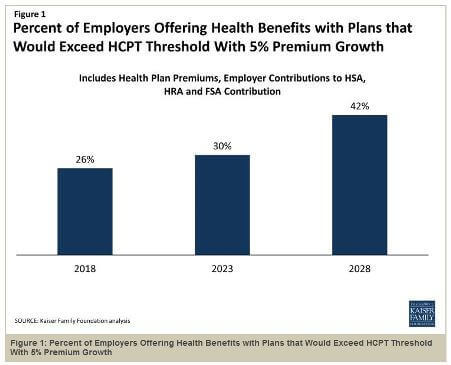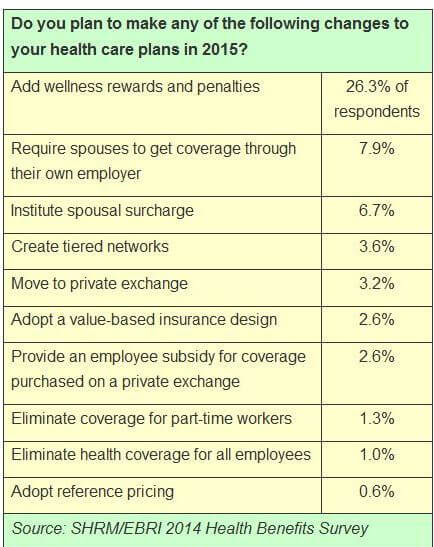Workplace wellness programs viewed as a key strategy to curb escalating costs
In 2018, the so-called “Cadillac” or excise tax will kick in under the Affordable Care Act. A recent survey of 425 large U.S. employers conducted by the National Business Group on Health (NBGH) found that health care benefit cost increases are expected to hold steady in 2016, but the possibility of reaching the threshold that triggers the ACA “Cadillac” tax in 2018 looms large in employers’ minds. The survey found that many employers are turning to wellness programs, expanding cost sharing mechanisms and adopting consumer-directed health plans (CDHPs) as cost containment measures. A significant portion of employers indicated that they plan to maintain or expand wellness programs.
Among the key findings:
- Employers project their health care benefits costs will increase 6.0% in 2016, the same increase employers would have experienced this year had they made no changes to their plan design.
- Some employers will keep increases to 5% for the third consecutive year by making plan changes, such as increasing cost-sharing provisions, adopting consumer-directed health plans (CDHPs), and expanding wellness initiatives.
- For many employers (43%), the number one driver of rising health care costs is high cost claimants.
- Respondents also cited three other cost drivers – the soaring costs of specialty pharmacy, specific diseases or conditions, and overall medical inflation.
- More than eight in 10 respondents (81%) plan to offer nurse coaching for care and condition management while 73% will offer nurse coaching for lifestyle management.
- Nearly three in four respondents (73%) provide employees with self-service decision-making tools to help them become better health care consumers.
- 93% of companies indicated they plan to expand or maintain funding for their wellness incentive program over the next three to five years.
- 44% of companies said they plan to maintain or increase their investment in wellness programs, even if their company were to move away from direct involvement in employer-sponsored health coverage.
The survey release adds:
“The need to control rising health care benefits costs has never been greater,” said Brian Marcotte, president and CEO of the National Business Group on Health. “Rising costs have plagued employers for many years, and now the looming excise tax is adding pressure. Employers only have two more years to bend the cost curve before the excise tax goes into effect in 2018. And while employers are pursuing several strategies to keep their plans under the excise tax threshold, they estimate their actions will only delay the impact by two to three years.”
Kaiser Family Foundation looks at How Many Employers Could be Affected by the Cadillac Plan Tax?, projecting that by 2018, 16% of employers offering health benefits would have at least one health plan that would exceed the $10,200 HCPT self-only threshold. Check out the article and see the chart below for more.

A 2014 SHRM survey looked at ways that employers plan to keep benefit costs in check and to avoid the cadillac tax: Employers Alter Health Plans to Drop Costs, Avoid Tax. The article also includes a good summary explanation of the basics of the Cadillac or excise tax.
“Beginning in 2018, the Affordable Care Act’s (ACA) 40 percent excise tax will be levied on the value of health insurance benefits above a certain amount—$10,200 for single coverage and $27,500 for family coverage, indexed annually for inflation. The levy is expected to affect plans that are costly because they are tailored for employees in high-risk professions or for employers with a large proportion of older employees.
Self-insured employers will have to pay the tax themselves. Insurance carriers will pay the tax on behalf of employers with fully insured plans. However, carriers almost certainly will pass along the cost of the tax to employers. (To learn more about the tax, see the SHRM Online article Tracking the Excise Tax Impact on High-Value Plans.)”
The article includes this chart showing actions that employers say they will take to avoid the excise tax.

